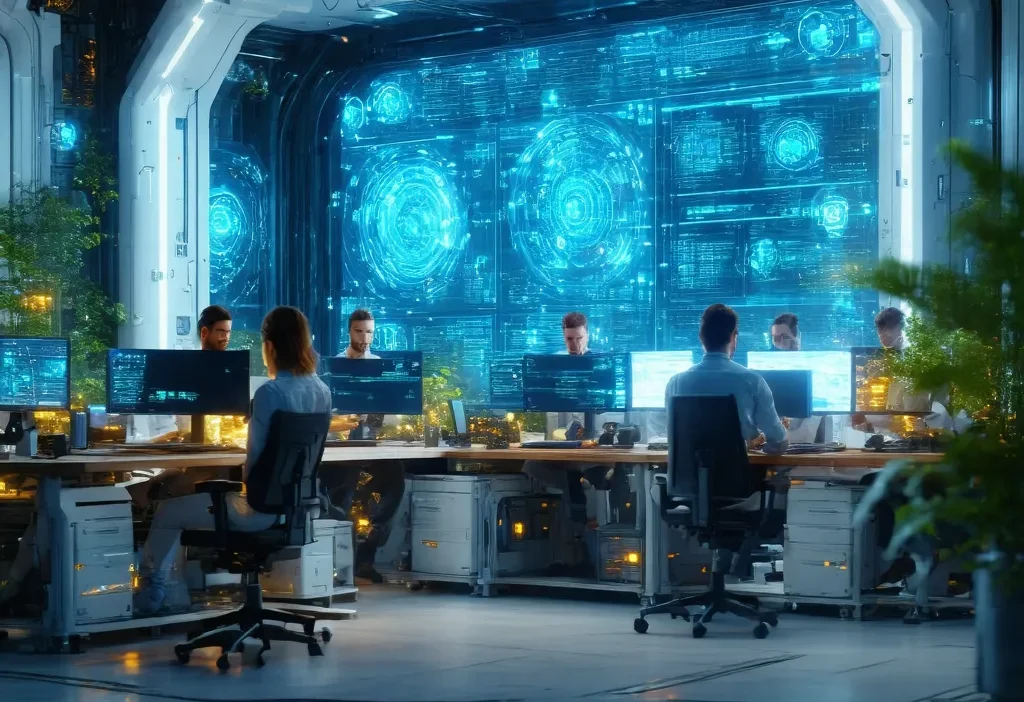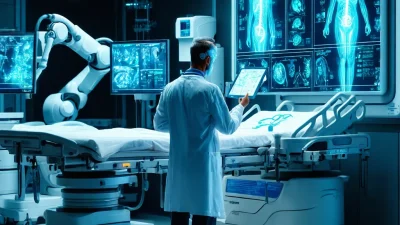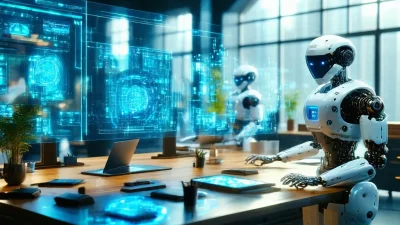How AI is Shaping the Future of Work: Opportunities and Challenges
In recent years, artificial intelligence (AI) has emerged as one of the most transformative technologies of our time. From automating routine tasks to revolutionizing entire industries, AI’s impact on the future of work is undeniable. But what does this mean for job markets? How will workers adapt to these changes? And what opportunities can arise from embracing AI-driven innovation? Let’s dive into these questions and explore the future of employment in an increasingly automated world.
AI and Automation: A Double-Edged Sword
Automation has been a cornerstone of technological progress for decades, but AI takes this concept to new heights. By leveraging machine learning algorithms, AI systems can now perform complex tasks that were once the exclusive domain of human workers. While this advancement promises increased efficiency and productivity, it also raises concerns about job displacement.
Some industries are already feeling the effects of automation:
- Manufacturing: Robots have long been used in assembly lines, but AI-powered machines now perform precision tasks with greater accuracy and speed.
- Retail: Self-checkout systems and inventory management tools reduce the need for manual labor in stores.
- Transportation: Autonomous vehicles threaten to disrupt traditional roles like truck drivers and delivery personnel.
However, it’s not all doom and gloom. AI also creates new opportunities by fostering innovation and opening doors to previously unimaginable roles. For example:
- Data scientists: Experts who analyze vast amounts of information to guide business decisions.
- AI trainers: Professionals responsible for teaching AI systems to perform specific tasks more effectively.
- Digital ethicists: Specialists who navigate the ethical implications of emerging technologies.
Embracing Change: Strategies for Workers and Employers
To thrive in an AI-driven economy, both workers and employers need to adapt. For employees, this means continuously updating skills to remain competitive. Lifelong learning has never been more critical. Workers should focus on developing:
- Critical thinking: The ability to analyze complex problems and devise creative solutions.
- Emotional intelligence: Skills like empathy and communication, which are hard for AI to replicate.
- Digital literacy: Proficiency in using and understanding advanced technologies.
Employers, on the other hand, should:
- Invest in upskilling programs: Provide training to help employees transition into new roles.
- Foster a culture of innovation: Encourage experimentation and collaboration between humans and AI systems.
- Prioritize ethical considerations: Ensure that AI implementations align with company values and societal norms.
The Role of Education in Shaping the Future Workforce
Education systems must also evolve to prepare students for an AI-driven world. Traditional curricula may no longer suffice, as they often focus on rote memorization rather than practical skills. Instead, schools and universities should emphasize:
- Project-based learning: Encouraging hands-on experience with real-world challenges.
- Cross-disciplinary collaboration: Preparing students to work in teams that combine technical expertise with soft skills.
- Exposure to emerging technologies: Giving students firsthand experience with AI tools and applications.
Initiatives like coding bootcamps, vocational training programs, and online learning platforms can also play a vital role in bridging the skills gap. By making education more accessible and adaptable, we can ensure that everyone has the opportunity to succeed in the AI economy.
Conclusion: Navigating the AI-Driven Future
The integration of AI into our workplaces is inevitable, but it doesn’t have to be a zero-sum game. By embracing change and fostering collaboration between humans and machines, we can unlock unprecedented levels of productivity and creativity. The key lies in proactive preparation—whether through education, upskilling, or ethical decision-making.
As we move forward, it’s essential to remember that AI is a tool, not a replacement for human ingenuity. By harnessing its potential responsibly, we can create a future where technology enhances our lives rather than diminishes them. The question isn’t whether AI will shape the future of work—it’s how we’ll choose to shape it ourselves.
For more insights into the intersection of technology and employment, check out our latest report on AI’s impact.





